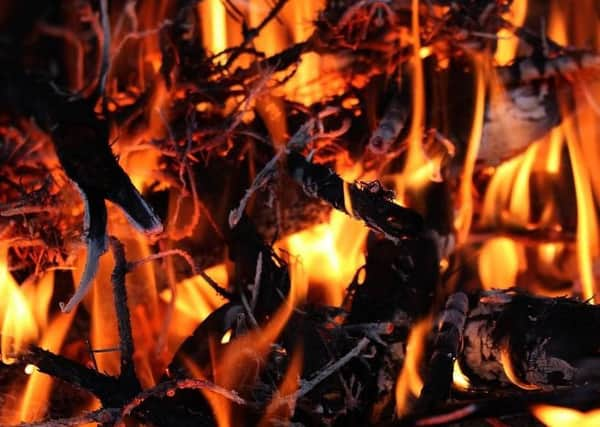Letter: dangers from burning wood


As equally dangerous as the exhaust fumes from diesel vehicles, are the soot particles produced by wood-burners and bonfires.
Known as PM2.5s, defined as having a diameter of one four-hundredth-of-a-millimetre or less, approximately 30 times smaller than the thickness of a human hair, these particles can penetrate deep into the lungs and have been implicated in exacerbating both lung and cardiovascular diseases.
Advertisement
Hide AdAdvertisement
Hide AdAccording to the European Environment Agency, PM2.5s are responsible for 37,800 premature deaths in Britain annually and while wood-burning stoves are portrayed, particularly by the manufacturers, as the eco-friendly option, the single biggest source for these particles is wood-burning, a third of which at least occurs actually in our homes.
The fact is that the makers of wood-burning stoves and boilers have been allowed to circumvent long-standing laws aimed at preventing smog.
I believe it is also the case that Horsham District Council has never implemented the Clean Air Act.
In 2016, the World Health Organisation reported that 39 towns and cities in the UK had breached what are regarded as safe levels of PM2.5 emissions.
Advertisement
Hide AdAdvertisement
Hide AdOf course, had they tested villages like Billingshurst, the number would have been considerably higher.
Worse, of course, is the fact that people burn all kinds of materials and wood treated with paint or preservative, for example, can give off lead and arsenic.
Most people do not need wood-burners, since they still require gas boilers for hot water and central heating and nobody requires a bonfire.
So please let us have a little thought for others and particularly our children, who don’t need the dangers posed to their health by wood-burning.
Robert Bishop
Broomfield Drive, Billingshurst